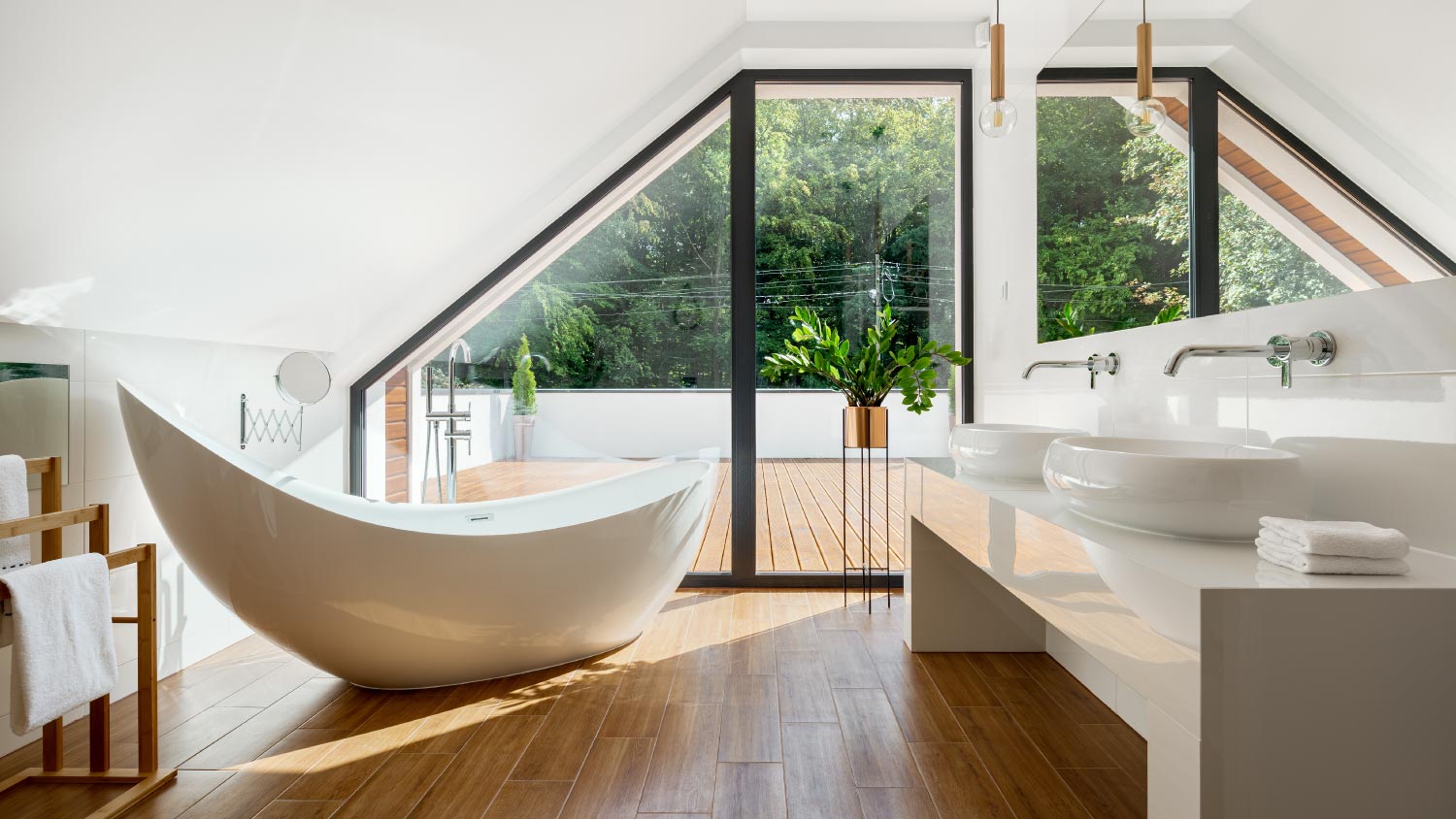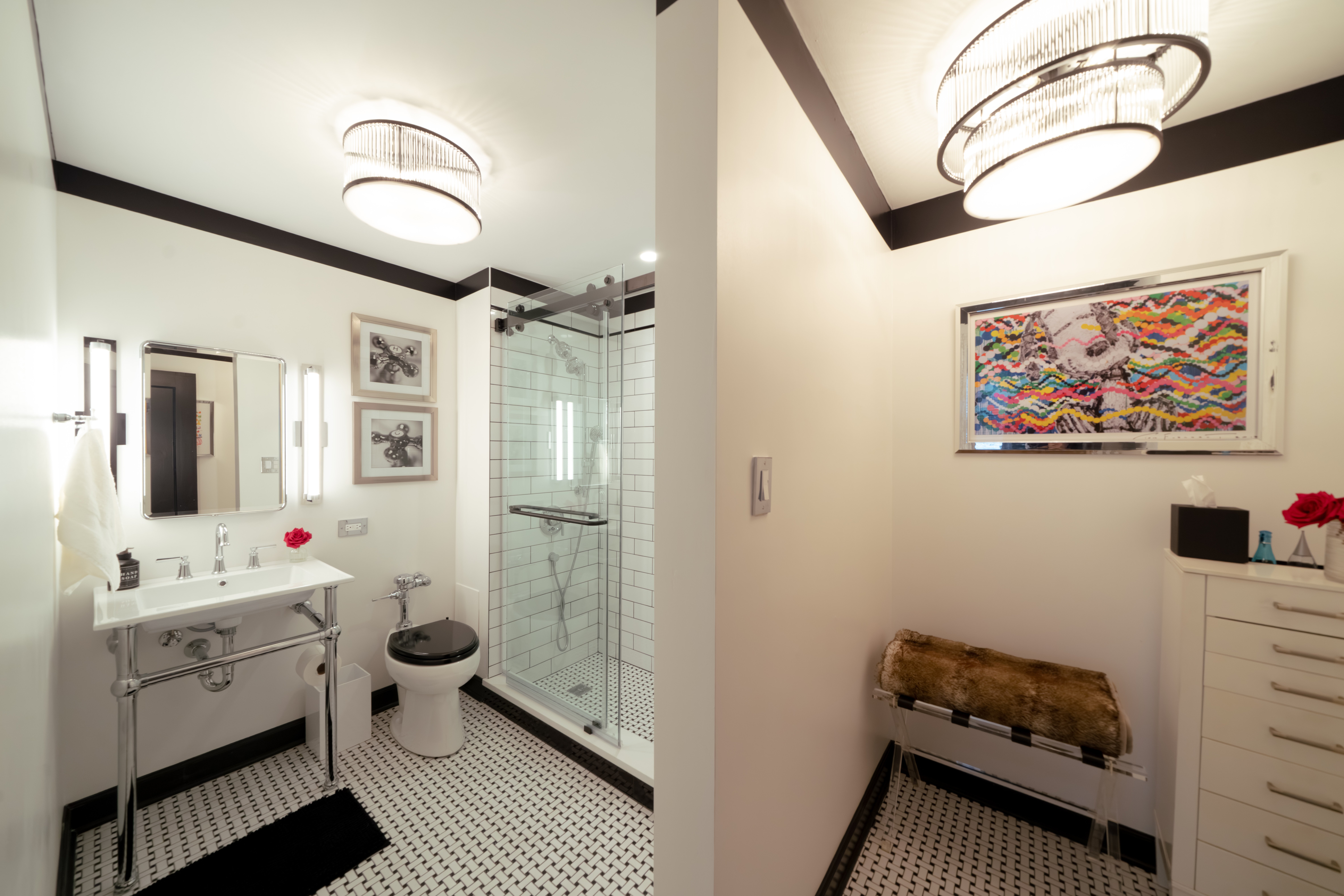
Do you want to add a mudroom to your home but are unsure if it’s within your budget? Use this mudroom addition cost guide to determine your installation price range.
Kitchen and bathroom remodel costs depend on your project and location. Check with a local pro for your specific job.
The cost to build a game room ranges from $3,000 to $50,000, with most homeowners paying $20,000.
Game room costs vary by size, finishes, and equipment choices.
Labor, permits, and specialty features add to the total price.
A well-designed game room can enhance home enjoyment and increase its resale value.
Customization and technology upgrades, such as gaming equipment and soundproofing, add to the overall investment.
This article was created using automation technology and thoroughly fact-checked and edited by an Angi Editor in accordance with our AI policy.
Most homeowners spend between $5,000 and $35,000 to create a game room, with an average cost of $20,000. Costs can range from $50 to $250 per square foot, depending on finishes, equipment, and whether you’re converting an existing space or building new.
Adding a game room gives you a dedicated space for fun, relaxation, and gathering with friends and family. This guide breaks down everything you need to know about costs, options, and what to expect, so you can plan a game room that fits your budget and style.
A game room remodel includes costs for materials, labor, furnishings, and equipment. If you’re converting an existing space, you’ll save on structural expenses, while building a new addition involves more construction and higher overall costs. Flooring, wall finishes, lighting, and electrical upgrades make up a significant portion of the budget, along with furniture and gaming equipment.
Popular features like pool tables, arcade machines, or home theater systems can quickly raise the price. Below is a table outlining the average costs for major components.
| Component | Description | Average Cost Range |
|---|---|---|
| Flooring | Carpet, laminate, or hardwood | $1,000–$5,000 |
| Wall finishes | Paint, wallpaper, or paneling | $500–$2,500 |
| Lighting | Recessed, LED, or specialty fixtures | $400–$2,000 |
| Electrical | Outlets, wiring, upgrades | $800–$3,500 |
| Gaming equipment | Pool, ping pong, arcade, consoles | $1,000–$10,000 |
| Seating | Sofas, chairs, bean bags | $500–$4,000 |
| Audio/visual | TV, speakers, projector, soundproofing | $1,000–$8,000 |
| Built-ins | Cabinets, shelving, bar | $1,000–$7,000 |
Converting an existing room is more budget-friendly, while building a new addition can double or triple these costs due to foundation work, framing, and exterior finishes.
The size of your game room is one of the biggest factors in total cost. Larger rooms require more materials, labor, and furnishings, which increases the overall investment. Game rooms range from small (100 to 200 square feet), medium (200 to 400 square feet), to large (400 square feet or more).
Basic finishes cost $50 to $100 per square foot, mid-range options are $100 to $175 per square foot, and high-end upgrades can reach $175 to $250 per square foot. Use the following table to compare costs by room size.
| Room Size (Sq. Ft.) | Description | Cost Range |
|---|---|---|
| 100–200 | Small game room | $5,000–$20,000 |
| 200–400 | Medium game room | $10,000–$30,000 |
| 400+ | Large game room | $20,000–$50,000+ |
Choosing the right size depends on your space, needs, and budget. Even a small room can provide plenty of entertainment with thoughtful design.
Several professionals may be involved in a game room remodel. A general contractor manages the overall project and coordinates subcontractors. Contractors charge 10% to 20% of the total project cost. Electricians handle wiring, lighting, and outlets, with rates averaging $60 to $120 per hour. Carpenters build custom cabinetry, shelving, and framing at rates ranging from $35 to $100 per hour.
Rates vary by region and project complexity. In a standard game room project, the general contractor oversees the process, the electrician handles all electrical work, and the carpenter builds or modifies walls and installs built-ins.
Depending on your design, you may want to hire the following additional specialists:
Interior designer cost: $50–$200 per hour for layout, theme, and décor planning
HVAC technician: $500–$2,500 for improved ventilation or climate control
Audio/visual specialist: $65–$150 per hour for home theater or advanced sound system installation
Painter cost: $300–$1,000 for painting walls and ceilings
Flooring installer: $3–$15 per square foot for new flooring
These professionals can help you achieve a polished look and ensure your game room is comfortable and functional.
Where you live plays a big role in how much a game room would cost. Urban areas and high-cost-of-living regions often see higher labor and material costs, while rural or less competitive markets can offer more affordable pricing. Local building codes and permit fees may also impact your budget.
Getting quotes from local pros helps you understand the expected investment in your area.
Several other expenses also affect the cost of building a game room. Taxes and insurance may increase slightly after a major remodel. Extended warranties for electronics and specialized equipment can provide peace of mind, but they also add to upfront costs. Accessories like smart lighting, integrated sound, or ADA accessibility features will also impact your budget.
Location within your home matters, too. Basement game rooms may require additional moisture control or egress windows, while main floor conversions may necessitate more extensive structural work. Addressing repairs or upgrades before starting the remodel—such as fixing leaks or leveling floors—can prevent bigger issues later. Don’t forget about the post-construction cleaning costs, which range from $200 to $500.
If you’re converting an existing space, demolition may involve removing old flooring, wall finishes, or built-ins. Demolition and debris removal cost $500 to $2,000. Additional prep work, like leveling floors, sealing walls, or addressing moisture issues, is essential for a long-lasting and comfortable game room.
Depending on your project, permits may be required for electrical upgrades, structural changes, or additions. Your contractor can handle permit applications, but homeowners are responsible for obtaining permits if they do the work themselves. Building permit costs range from $200 to $1,500, depending on your location and the scope of work.
Tackling a game room remodel yourself can save on labor but requires time, skill, and the right tools. DIYers often spend more on equipment rentals or purchases but avoid contractor markups. However, complex tasks such as electrical work, custom-built-ins, or structural changes should be left to licensed professionals for safety and code compliance.
While a DIY project can save 20% to 40% on labor, it often takes longer to complete. If you’re confident in your skills and have time to spare, DIY can be rewarding. For specialized work or large-scale projects, hiring a local home renovation contractor ensures quality and peace of mind.
Remodeling a game room involves major changes, such as moving walls, adding windows, or upgrading electrical systems, whereas renovating focuses on updating finishes, lighting, or furniture without altering the room’s structure. Renovations are less expensive, costing between $5,000 and $15,000, while full remodels can reach $35,000 or more.
Examples of renovation include painting, installing new flooring, updating lighting, or adding new furniture. Remodels may entail opening up the space, building custom cabinetry, or integrating a home theater system. Choose renovation if you’re on a tight budget or happy with your room’s layout, and remodel if you want a dramatic transformation.
Looking to keep costs down? Consider these strategies:
Choose cost-effective materials and finishes.
Repurpose existing furniture or equipment.
Limit structural changes to reduce labor and permit costs.
DIY painting or minor installations to save on labor.
Shop sales or buy used gaming equipment.
Prioritize must-have features and add upgrades over time.
Get multiple quotes from pros to compare pricing.
Smart planning and flexibility help you create a fun space without overspending.
A thoughtfully designed game room can make your home more appealing and increase its value, especially if it offers versatility and quality finishes. The return on investment (ROI) for game rooms varies, but many homeowners recoup between 50% and 70% of their investment, depending on the location and design.
Factors that influence ROI include the quality of materials, how well the space fits with the rest of the home, and its ability to serve multiple purposes. For the best resale value, avoid over-customization and ensure the space can be easily adapted by future owners. Removing a bedroom to add a game room may lower value, so weigh your options carefully.
Home is the most important place on earth, which is why Angi has helped more than 150 million homeowners transform their houses into homes they adore. To help homeowners with their next project, Angi provides readers with the most accurate cost data and upholds strict editorial standards. We extensively research project costs to develop the pricing data you see, so you can make the best decisions for you and your home. We rely on reputable sources, including the U.S. Bureau of Labor Statistics, academic journals, market studies, and interviews with industry experts—all to ensure our prices reflect real-world projects.
Want to help us improve our cost data? Send us a recent project quote to [email protected]. Quotes and personal information will not be shared publicly.
From average costs to expert advice, get all the answers you need to get your job done.

Do you want to add a mudroom to your home but are unsure if it’s within your budget? Use this mudroom addition cost guide to determine your installation price range.

Remodeling your bathroom can add significant value to your home. Your bathroom remodel cost will depend on size, fixtures, materials, labor, and other factors.

The cost to add a bedroom and bathroom can pay off with an increase in your home’s value and more space for you and your family. Costs vary by project scope.

Working from home is only productive if you have a dedicated office space. Learn the cost to build a home office, from materials to labor rates.

An updated bathtub can give a bathroom a whole new look. Find out how much it costs to replace a bathtub in Orlando, FL, including prices by type and labor costs.

An outdated bathroom is transformed into a vintage-inspired space with basketweave floor tile, a console sink, and subway tile.